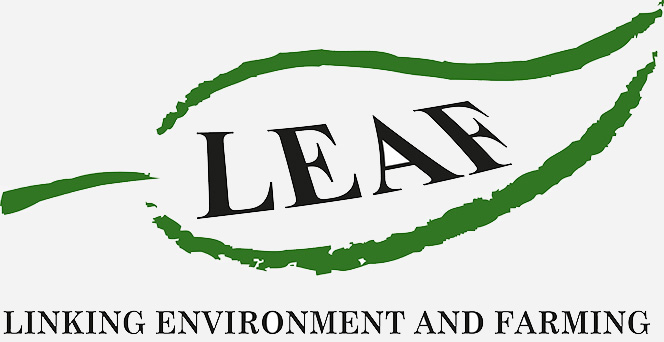Crops, fruit and vegetables

All our UK FRESH fruit
and vegetables are grown to
LEAF MARQUE standards
At Waitrose we strive for the best produce in terms of flavour, quality and value – whether it’s frozen or fresh, organic or not. That’s why we’ve established relationships with expert growers over the years to make sure the right varieties of veg are planted, the berries are picked to ripen in time for eating and the crops are harvested from soil filled with nutrients.
One of the ways we guarantee our produce is grown with respect for its surroundings is by working with the British organisation LEAF (Linking Environment And Farming). The LEAF Marque guarantees that the farm is using sustainable farming methods, such as encouraging biodiversity, crop rotation and improving water quality.
The reason we understand the importance of efficient, sustainable agriculture is because we’re farmers too. At Leckford, the LEAF-certified Waitrose farm in Hampshire, we grow mushrooms, apples, pears, grapevines, wheat for flour and rapeseed for cold-press cooking oil – we also have our own dairy herd.
The Waitrose Agriculture Strategy sets out our ambition to introduce regenerative farming techniques that focus on topsoil regeneration, improving the water cycle as well as increasing carbon capture, biodiversity and resiliance to climate change. In 2020 we launched our commitment to make greenhouse gas emissions from our UK farms net zero by 2035.


MEET the farmer
“As my business has evolved, sustainability has become part of my ethos,” says Surrey berry farmer Harry Hall, who supplies Waitrose with seasonal strawberries, raspberries and blueberries.
Several years ago, Hall Hunter farms had trouble pollinating their blueberries because they relied too heavily on a honeybee population that didn’t become active until at least the end of May – or later if the weather was cool.


Harry Hall, with dog Cora, introduced bee colonies to help with pollination on his LEAF-certified farms
'Not only do bumblebees start earlier in the season, they work industriously long days, starting earlier and finishing later than honeybees'
Harry came up with a detailed plan to encourage better natural pollination, including introducing bumblebee colonies that would help pollinate before the honeybees took over. Not only do bumblebees start earlier in the season, they work industriously long days, starting earlier and finishing later than honeybees.
Hives were placed in the middle of blueberry crops, and the volumes of bumblebees were adjusted according to the point in the season and the weather. It has proved to be a natural and mutually beneficial arrangement for both farmer and bees.
Harry is also investing in an aerobic digester, which can turn waste such as post-season strawberry plants, wooden pallets and cardboard into various useful products, including a fertiliser, a mulch for suppressing weeds and a liquid soil conditioner that encourages good root growth. He buys materials in a ‘closed loop’, meaning he has planned the product’s final destination before he buys it. “We recycle polytunnel polythene, for example,” he says. “Being sustainable isn’t simply a good thing to do – it makes sound business sense, too."






